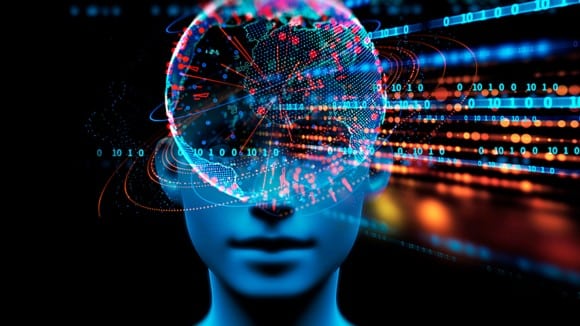For decades, science fiction authors, futurists, and filmmakers have predicted the incredible changes that will occur as artificial intelligence becomes more prevalent. Although AI has not yet made such large waves, it has gradually become prevalent in many aspects of our daily lives. By 2050, artificial intelligence will be used to improve the future.
Artificial Intelligence to Improve Their Future by 2050
From sophisticated sensors that allow us to take excellent photos to automated parking capabilities in automobiles to the frequently perplexing personal assistants in smartphones, artificial intelligence is all around us. Artificial intelligence is expected to have a significant impact on education. This article will go over ten ways that children can use artificial intelligence. While humanoid robots may not be teaching in the next decade, there are numerous efforts underway to provide children with artificial intelligence.
Artificial Intelligence-Powered Data
Smart data collection, enabled by advanced computer systems, is already improving how universities interact with prospective and current students. Advanced computer technologies are assisting in making every aspect of the college experience more closely tailored to student requirements and objectives, from recruitment to assisting students in selecting appropriate courses.
Educational software can be customized to meet the needs of students.
Increased levels of individualized learning will be one of the most significant ways that artificial intelligence will change education from kindergarten to graduate school. Some of this is already happening as a result of the growing number of adaptive learning tools, games, and software. These systems adapt to the learner’s needs, concentrating on specific subjects, repeating material that students haven’t mastered, and encouraging students to study at their own pace, whatever that may be.
Artificial Intelligence Tutors to the Rescue
While there are some advantages that human tutors can offer that robots cannot, the future may see more students being trained by tutors who only exist in zeros and ones. There are currently several artificial intelligence-based tutoring software programs available to help children with basic mathematics, writing, and other subjects.
AI Suggestions for Course Improvement
Teachers may not always be aware of gaps in their instructional and lecture materials that cause students to be confused about specific subjects. AI provides a solution to the issue. Coursera, the world’s largest open online course provider, is already doing so. When a large number of students submit incorrect answers to a homework assignment, the system notifies the teacher and sends a personalized message with advice to future students.
AI Reduces the Fear of Learning
Artificial intelligence teachers may be able to provide ideas for development, allowing students to explore and learn in a mostly judgment-free environment. Because AI systems frequently learn through trial and error, AI is the ideal framework for enabling this type of learning.
Basic Activities Can Be Automated Using AI
There is little doubt that AI will not replace human grading, but it is on the verge of doing so. Automatic grading of fill-in-the-blank and multiple-choice exams is now possible for instructors, and student work grading may not be far behind. Today, essay grading software is still in its infancy and far from perfect, but it can (and will) improve in the coming years, allowing instructors to devote more time to in-class activities and student participation rather than grading.
AI-Powered Programs
AI can not only assist instructors and students in creating courses that are tailored to their specific needs, but it can also provide feedback on the course’s overall performance. Some educational institutions, particularly those with online programs, use AI systems to monitor student progress and notify professors when there is a problem with student performance.
Tutors Replaced by AI
Teachers will always be needed in education, but the nature of their jobs and what they entail may change as a result of new technology in the form of intelligent computer systems. As previously stated, artificial intelligence has the potential to replace tasks like grading, assist students in improving their learning, and even replace in-person tutoring.
AI is Changing the Way We Find Information
We rarely notice the AI algorithms that alter the content we see and discover on a regular basis. Google modifies search results based on a user’s location, Amazon recommends items based on previous purchases, Siri adapts to your wishes and requests, and nearly all online advertisements are tailored to your interests and purchasing history.
AI may influence who teaches students.
AI systems, software, and assistance allow students to learn from anywhere in the world at any time, and with these types of programs taking the place of various forms of classroom education, AI may simply replace teachers in some cases.














